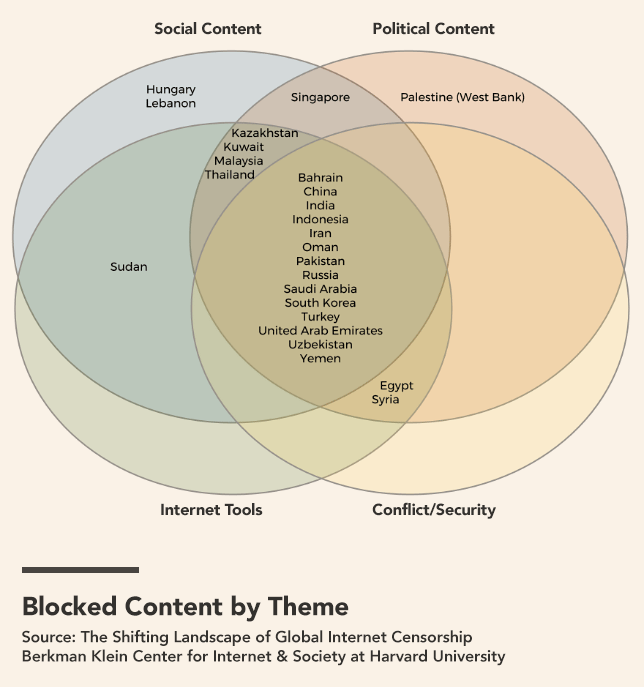

|
||
With websites and social media platforms moving from HTTP to secure HTTPs connections in recent years, a new degree of complication is affecting Internet censorship efforts around the world. A new study conducted by the Internet Monitor project at the Berkman Klein Center for Internet & Society finds that the move to HTTPS is preventing censors “in the middle” from seeing exactly which pages a user visits. This, in turn, has made blocking specific pages on a domain impossible using standard filtering techniques. From the study: “These trends have created additional challenges for government censors. Now more than ever, governments have an all-or-nothing choice when it comes to censorship. Instead of targeting individual webpages or social media accounts, government censors must choose between allowing all content on a social media platform or a messaging app and blocking all content to conceal the information they deem detrimental. It is unclear whether this development will over time result in lesser or greater access to information.”

Sponsored byDNIB.com

Sponsored byVerisign

Sponsored byRadix

Sponsored byIPv4.Global

Sponsored byVerisign

Sponsored byWhoisXML API

Sponsored byCSC
